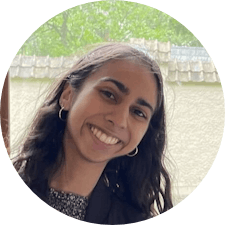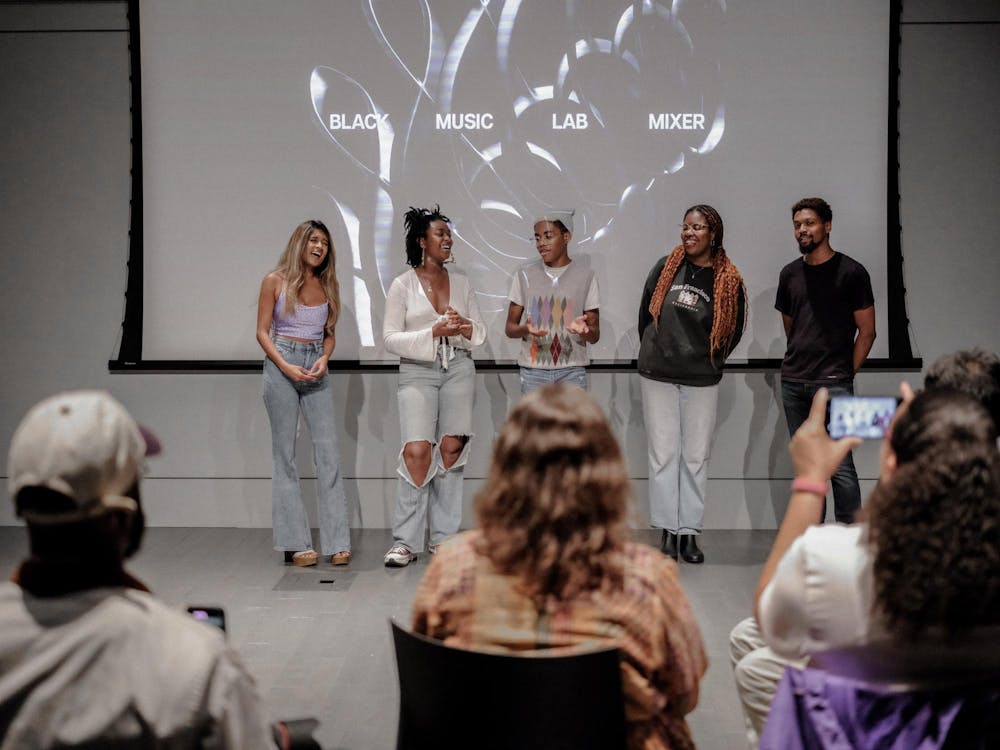Though it’s relatively new to Brown’s arts scene, the Black Music Lab — an in-development hub that works to amplify both artists on campus and beyond — has already managed to establish its presence on College Hill.
Currently housed within the Brown Arts Institute, the lab was founded in fall 2022 by Enongo Lumumba-Kasongo, the project’s faculty director, and Charrisse Barron, an ethnomusicologist who has taught at Brown and is now an assistant professor of music at Harvard.
“We noticed or recognized that there were so many amazing programs happening on campus in terms of Black musical performance and study, but it was kind of dispersed,” Lumumba-Kasongo said. Forming the lab was a way to both amplify artistic projects occurring on campus and connect them to creative work being done in the greater Providence community, she added.
To help connect artists across Brown and Providence, the Black Music Lab holds mixers at the beginning of each semester that are open to all community members. The lab also hosts and sponsors events such as artist talks, performances and symposia throughout the semester, and works to support Brown faculty members in their studies of Black music.
Past programming has featured guest artists like rapper bbymutha and interdisciplinary artist and scholar DJ Lynée Denise, who visited Brown last spring and this fall while working on her new book “Why Willie Mae Thornton Matters.”
Lumumba-Kasongo described the lab’s first semester as the beginning of a three-year incubation period. She said that the lab’s focus was mainly on making connections within Providence’s vast music scene.
“I really wanted to take my time and figure out what are the needs on campus and needs in the community, and how can we show up in a way that supports all the work going on,” Lumumba-Kasongo said.
She also stressed the importance of the term “lab” in defining her work: “This is kind of an experiment in thinking about how … (to) create something that’s precious enough to grow and expand but that also has some shape to it.”
Equally important to defining the lab’s work is its focus on “building community around the study (and performance) of Black music,” Lumumba-Kasongo added.
“I just want people to have a sense that there are all these conversations happening, and there are unifying themes and ideas” across time, the diaspora and discipline, she explained.
The Black Music Lab has also worked to provide financial support to student artists, currently funding three Undergraduate Teaching and Research Awards for undergraduate fellows.
Makayla McPherson ’24, one such fellow at the lab, is “currently planning a live-music event centered around music as a tool for mindfulness and meaningful community building,” she wrote in an email to The Herald. She also collaborates with the other award recipients — Jade Hardwick ’26 and Jemima Alabi ’24 — to help compile and disseminate the lab’s weekly newsletter.
Hardwick uses the lab’s support to combine her love of music with her passion for dance. This past Friday, she hosted a Waistline Workshop in collaboration with Brown’s Students of Caribbean Ancestry, during which she fused Bacardi and Calypso styles of dance to create an Afro-Caribbean piece.
“People who are very uncomfortable with dancing — let alone dancing with their hips — they gained some confidence while they were learning my piece,” she said. “That’s kind of part of the Black Music Lab — exposing people to different cultures and different styles of music.”
As far as upcoming projects go, Hardwick also plans to choreograph and teach a hip-hop piece for students at local Providence schools, hoping to form lasting connections with dancers from the local community.
The lab has also provided financial support to Marcus Grant GS, a third-year Ph.D. student at Brown studying musicology and ethnomusicology. With the lab’s funding, Grant organized a concert last spring highlighting the work of Abbey Lincoln and Nina Simone.
Grant also credited the lab with helping promote his arrangement of “Vampire Nation” — part of the University Library’s exhibition on Mumia Abu-Jamal — this past September.
“In pretty much any project I have, they’re very much involved in showing support and literally just … pulling up to the project,” Grant said.
In the future, Lumumba-Kasongo said she hopes the lab will continue to provide support for student performances, carve out a regular meeting space for anyone who’d like to be involved with the project and create more opportunities for artist talks.
From speaking with students, Lumumba-Kasongo said she has also gathered that many want to better understand professional paths in music. She hopes to “use the lab to actually arm people with practical tools for navigating life as a musical artist, so we’re not just thinking about music in theory but really invested in what it means to sustain a life as a Black artist.”
“There is a social justice piece to this,” Lumumba-Kasongo continued. “How do we empower people? How do we give people resources? How do we support the work that’s going on so that we can resist systems of exploitation that often are attached to Black artists and Black artistry?”
“I love the fact that it’s called the Black Music Lab — that it focuses on the work and the art of Black musicians — but it doesn’t necessarily alienate any other folks from being involved and other folks from supporting,” Grant said. “There’s a lot of collaborations happening.”
McPherson similarly praised the Black Music Lab’s “community-driven perspective.”
“The lab works to expand notions on what community means through collaboration that extends beyond the confines of the Brown bubble,” she wrote. It offers “musicians an expansive perspective of (what) community is and how to offer and find support as a creative.”

Rya is an Arts & Culture editor from Albany, NY. She is a senior studying English and Literary Arts, and her favorite TV show is Breaking Bad.





